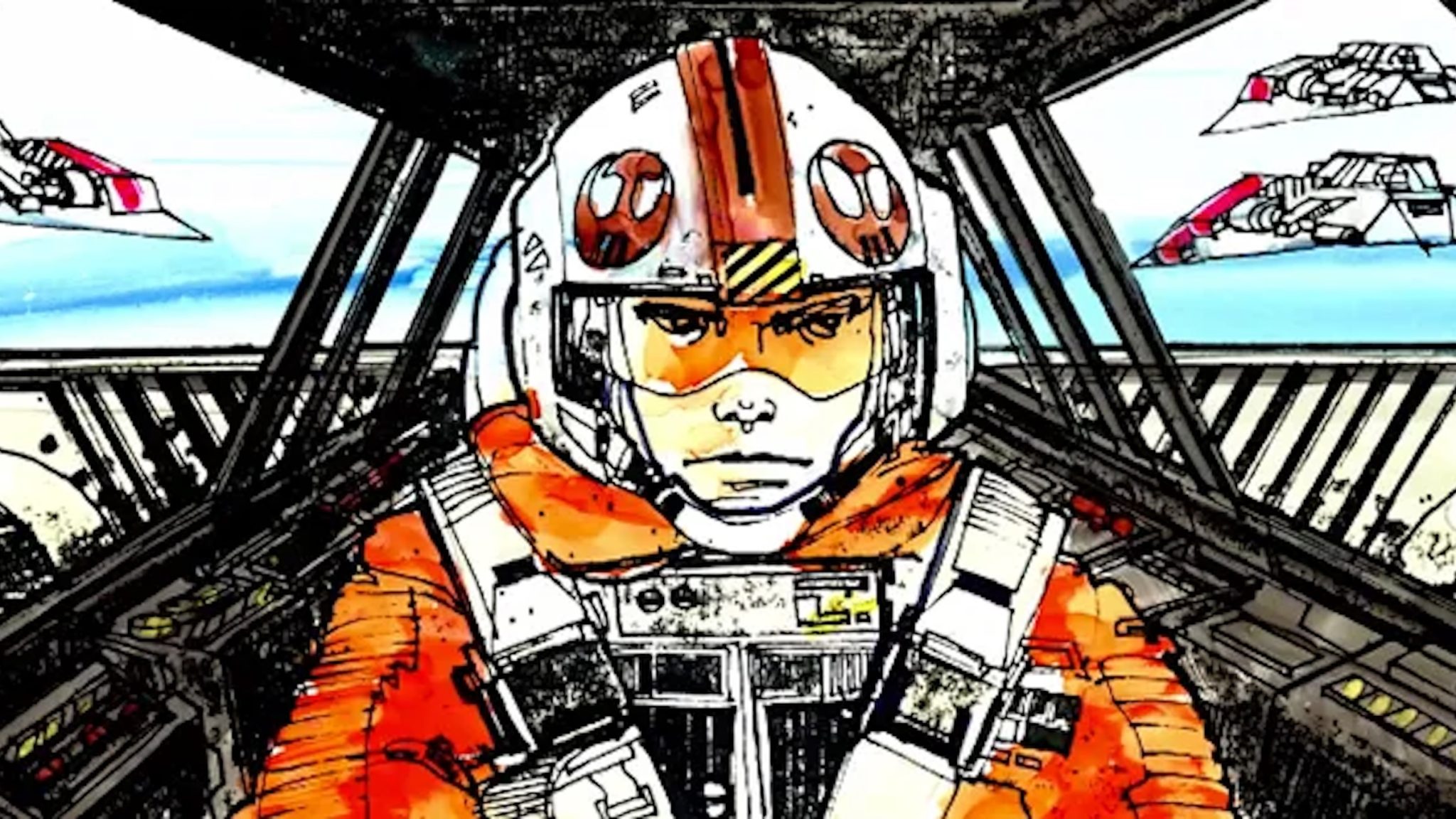Top 5 Things Studio Script Readers Really Want

What are script readers looking for when they open your screenplay?
The script reader is the most vital element to any screenwriter's failure or success because if you don't make an impact with the script reader, they don't recommend your script. And if they don't recommend your script, it's either you the screenwriter waiting for an email or call to no avail, or it's outright rejection — thanks, but no thanks.
But what do studio script readers really want? What flips that switch inside their heads from deciding to forget or forward your script up the totem pole to the powers that be? ScreenCraft has covered the Script Reader's Checklist very well, but let's dig a little deeper. Knowing what they want and applying that to your scripts increases your odds of success tenfold.
For context purposes, I've been in this position. I was a script reader for Sony under the late Hollywood legend John Calley's production wing after he retired from running the studio. Before that, I learned how to write studio coverage as an intern under the tutelage of Grease director Randal Kleiser.
There are different tiers of script readers.
You have your interns, that are asked to read scripts and fill out coverage forms in between fetching coffee, answering phones, welcoming visitors, ordering lunch, etc. And they do it for free.
Then you have your assistants that work for producers or development executives. They are asked to read scripts and fill out coverage forms in between fetching coffee, answering phones, welcoming visitors, ordering lunch, etc. But they get paid.
Finally, you have script readers and story analysts whose sole duty is to write studio coverage for submitted and requested screenplays and novels. That's all they do. That was me.
To break down their overall process, script readers are asked to read scripts (and sometimes novels, comics, etc.) and write studio coverage, which is basically an evaluation sheet where they rank various elements of the scripts (concept, dialogue, writing, format, marketability, etc.) and accompany that with a synopsis of the story (so powers that be don't have to read through every script they get), as well as detailed notes covering what works and what doesn't work... and why. Script readers then classify each script as a Pass ("no"), Consider ("maybe"), or Recommend ("yes, yes, yes!"). ScreenCraft's Consulting, as well as our Contests, can give you a look into this process and the results, as we've gathered some very experienced industry readers and consultants.
So what do studio script readers want?
1. They want what their bosses want.
The first inclination of any quality studio script reader is listening. Listening to what the powers that be are looking for and what they'd like to avoid. I remember my first week as a script reader for Sony. While I had some experience, I was still new to the game. I read a script — a period piece — about a murder mystery. It was engaging. It kept me invested. It kept me turning the pages. I gave it a recommend. My boss politely sat me down and said, "Ken, are you telling me that you'd want us to spend millions of dollars on a murder mystery set in the 1700s?" Furthermore, we discussed how much period pieces cost and how such a setting can all too often scare away some of the demographics of the audience. "Now, tell me, would you still want to recommend this script to us?" My answer was a quick "No." Lesson learned.
Script readers need to first and foremost serve the needs of the powers that be (producers, development executives, talent, etc.). A script reader working for Screen Gems isn't going to recommend a big budget science fiction script — such a script shouldn't have been submitted to that company in the first place, but more on that later). They are going to recommend smaller, character-driven pieces because that's the niche that Screen Gems handles for its parent company Sony. On that same note, a script reader for Jerry Bruckheimer Films isn't going to recommend a smaller, character-driven piece because we all know the types of films Jerry produces.
So understand that you must choose wisely, as far as where you send your queries to and what companies, studios, or talent you target when you're ready to market your spec script. Don't scoff at any given company (and their script readers) if they reject your script because all too often, even if your script is great, it may just not be for them.
2. They want clarity.
There's nothing worse than opening a script to find horrible formatting. And if it's not outright horrible formatting, what can even be worse is formatting that is overly busy, with various camera angles, flashbacks, flash-forwards, transitions, inserts, etc. I get angry even thinking about those scripts now.
The military has an acronym. KISS. Keep It Simple Stupid. Nothing could be truer when it comes to screenwriting. Give me locations, character names, action description, and dialogue. That's it. If you have some different elements to introduce scattered throughout the script, I'll forgive that. But if you're over-explaining what I'm supposed to see by using busy formatting, you lost me even before you had the chance to engage me. Speaking of engaging...
3. They want to be engaged.
Plain and simple. And this goes for script readers and anyone they pass the script up to. They want to be engaged. Quickly.
Close your eyes and imagine that you're a studio script reader. Unlike assistants and interns that are asked to read and write coverage to maybe one to a few scripts a week (it varies), studio script readers have stacks. A seemingly endless pile. Although these days it's more like a full folder on their PC or Mac.
When one is complete and coverage is written, two more come from above. Now imagine these generalized — but surprisingly accurate —numbers: 95% of the scripts they receive are utterly horrible or just aren't ready. 4% are average to slightly above average at best. 0.5% are pretty good. That leaves roughly 0.5% of all scripts read as being worthy of recommendation. It's a grind to find those diamonds in the rough — and it really is like finding treasure. So imagine the dismay studio script readers feel 95% of the time.
So the best thing a screenwriter can do is write an engaging script. Good isn't enough. And these days, great isn't either. You have to blow them away. And you have to do it quick. In the past, people have said that it needs to happen in the first ten pages. These days, it needs to happen in the first five.
"What?! The first five pages?"
You can engage a script reader by first having a script that is right for the company, then have a script that is very clear and easy to read from a formatting standpoint, and after that, if you have some compelling opening moments in those first five pages, you're well on your way. Readers can always tell within the first five pages — give or take — if a script is going to be a good ride or a long, dull haul. Engage the script reader in those first five pages as I have explained and then you're off to a great start.
But, you have to continue to engage them every few pages. You have to keep things moving forward. You have to keep them guessing. It doesn't matter if it's a drama, action, thriller, horror, or comedy. You have to master the art of writing page-turners that are constantly moving forward, changing things up, surprising us, etc. That's what script readers NEED the most.
4. They want to be invested.
There is a difference between being engaged and being invested. Being engaged in a script means that it's written in a way where elements are progressing well — concept, story, and characters — and are managing to keep the script reader's interest.
Being invested means that the script reader needs to know what is going to happen next and how everything is going to end. They've invested not only their time, but their focused attention and emotion because what they are reading is playing in their mind's eye as if they're sitting in that theater with their popcorn and soda, wide-eyed, on the edge of their seat either laughing, cheering, crying, or screaming — depending on the genre. That's what being invested in a script is all about.
Reading an engaging script can still just be a commitment or duty, albeit a more pleasant one. Reading a script that you're invested in is a pleasure.
5. They want consistency.
I mentioned before that script readers need to classify the scripts they read as Pass, Consider, or Recommend. Some might think that Consider is as good as Recommend, if not at least putting them in a better situation than Pass. That's really not the case.
Considers are usually ranked as such because certain elements of the scripts are worthy while others are lacking. Maybe the concept was amazing but the delivery was lackluster. Maybe the opening act of the script was outstanding, but then what follows doesn't live up to those opening pages. Maybe both the beginning and ending are stellar, but there's virtually nothing in between. Maybe the characters and dialogue are perfect — making it a very castable script — but they are set within the wrong concept (Good Will Hunting was originally a thriller until William Goldman recommended that they drop those aspects of the script and focus on the characters).
Script readers want consistency. They want the promised concept to be consistent throughout the script. They want the format and structure to be consistent. They want to be consistently engaged throughout the script. They want to be consistently invested throughout the script. And yes, they want all of that in the most consistent manner possible because anything else is just a Consider (or Pass), and like I said — being good isn't good enough, nor is being great. You have to knock their socks off from the beginning, through the middle, and to the end to be worthy of the Recommend.
All of these elements, these wants, add up to many other contributing factors. They want to be entertained. They want to laugh, cry, cheer, be thrilled, or be touched (or all of the above), depending on the genre. They want to be able to see that movie through their mind's eye in the most rapid of fashion. Those are the best scripts — the page-turners — where you don't feel like you're reading literature of sorts. It's when you feel like you're seeing a movie unfold before your eyes as you read... that's where the magic is. That, my friends, is what script readers really want.
Ken Miyamoto has worked in the film industry for nearly two decades, most notably as a studio liaison for Sony Studios and then as a script reader and story analyst for Sony Pictures.
He has many studio meetings under his belt as a produced screenwriter, meeting with the likes of Sony, Dreamworks, Universal, Disney, Warner Brothers, as well as many production and management companies. He has had a previous development deal with Lionsgate, as well as multiple writing assignments, including the produced miniseries Blackout, starring Anne Heche, Sean Patrick Flanery, Billy Zane, James Brolin, Haylie Duff, Brian Bloom, Eric La Salle, and Bruce Boxleitner. Follow Ken on Twitter @KenMovies
For all the latest ScreenCraft news and updates, follow us on Twitter, Facebook, and Instagram.
Tags
Get Our Screenwriting Newsletter!
Get weekly writing inspiration delivered to your inbox - including industry news, popular articles, and more!




























